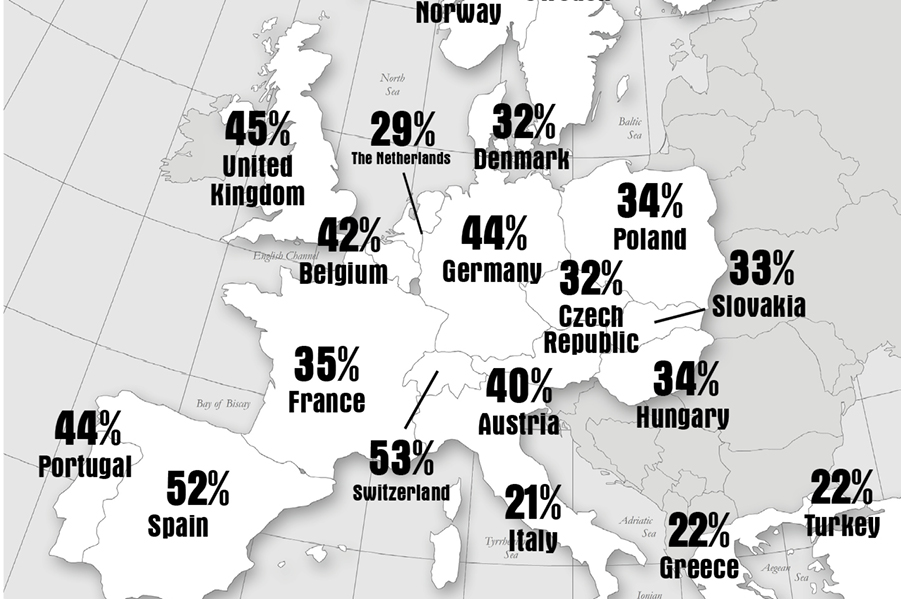Private label market share in volume gained in 14 out of 20 countries, according to the latest data in PLMA’s 2015 International Private Label Yearbook and based on exclusive Nielsen data. Market share increases were posted across all regions. In the north, there were gains in the United Kingdom, Germany, The Netherlands, Belgium, Denmark and Norway. In the south, private label share increased in Spain, Italy and Turkey. Five central and eastern countries – Poland, Austria, Czech Republic, Hungary and Slovakia – all improved their private label performance. Switzerland (53%) and Spain (52%) recorded the highest volume shares. Five countries – United Kingdom, Germany, Austria, Belgium and Portugal – achieved volume shares of 40% or more. Nielsen also found impressive gains in the value share of retailer brands. Seventeen of the countries recorded increases in value share, while only two countries declined. The United Kingdom, Spain and Switzerland all now have value shares of more than 40%.Private label has established a dominant market share position in several product categories. The Yearbook data shows retailer brands accounting for more than half of all the paper and hygiene products sold in 11 of the 12 countries reported by Nielsen. Private label also represents at least half of all frozen products sold in 10 countries and half of the pet products in nine countries.
WHAT ARE PRIVATE LABEL PRODUCTS?
Private label products encompass all merchandise sold under a retailer's brand. That brand can be the retailer's own name or a name created exclusively by that retailer. In some cases, a retailer may belong to a wholesale group that owns the brands that are available to only the members of the group.
WHAT PRODUCTS ARE SOLD AS PRIVATE LABEL?
Major supermarkets, hypermarkets, drug stores and discounters today offer almost any product under the retailer's brand. Private label cover full lines of fresh, canned, frozen, and dry foods; snacks, ethnic specialties, pet foods, health and beauty, over-the-counter drugs, cosmetics, household and laundry products, DIY, lawn and garden, paints, hardware and auto aftercare.
WHAT ARE THE ADVANTAGES OF PRIVATE LABEL?
For the consumer, private label represents the choice and opportunity to regularly purchase quality food and non-food products at savings compared to manufacturer brands, without waiting for promotional pricing. Private label items consist of the same or better ingredients than the manufacturer brands, and because the retailer's name or symbol is on the package, the consumer is assured that the product meets the reatiler's quality standards and specifications.
WHO MAKES PRIVATE LABEL?
Manufacturers of private label products fall into three general classifications: Large manufacturers who produce both their own brands and private label products. Small and medium size manufacturers that specialise in particular product lines and concentrate on producing private label almost exclusively.Major retailers and wholesalers that operate their own manufacturing plants and provide private label products for their own stores.
A UNIQUE ORGANISATION FOR A UNIQUE INDUSTRY
The private label business is unique. It has it's own needs and objectives. That's why there is a trade association that serves the industry exclusively. Founded in 1979, the Private Label Manufacturers Association is the international trade organisation dedicated to the promotion of private label brands. With offices in Amsterdam and New York, PLMA represents more than 3 500 manufacturers and suppliers worldwide, ranging from companies that specialise in private label to those that produce private label products in addition to their own manufacturer brands. PLMA offers trade shows, programmes, and services that are specifically designed for the industry.












